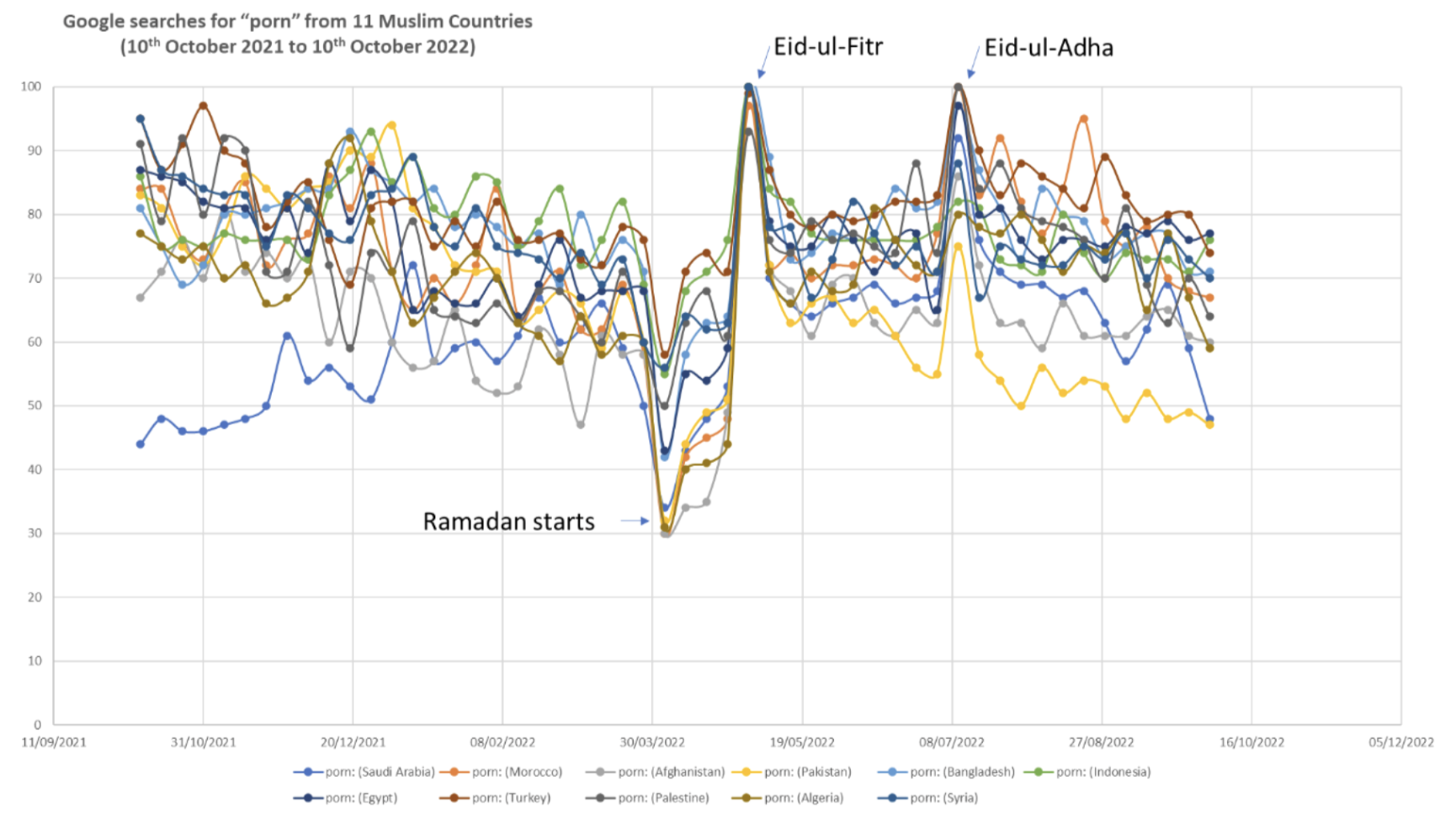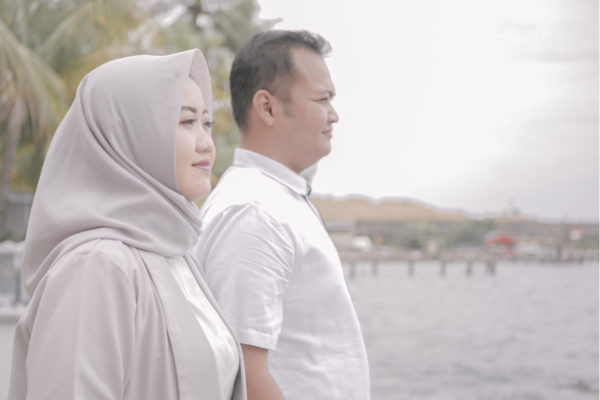We cannot ignore the pornographic addiction epidemic in the ummah – and it’s only getting worse.
We cannot ignore the pornographic addiction epidemic in the ummah – and it’s only getting worse.
This article discusses an uncomfortable issue that most people avoid. It’s taboo in most households. Our families, our communities and our ummah are in the hands of a destructive drug that impacts us all. Pornography. If you think, as I did, that this doesn’t affect my family or me, set aside that mindset for a moment and let me show you some statistics.
The Average Age of Exposure is 11 Years Old!
The easy accessibility of pornographic images and videos means younger children are being exposed. Research from security technology companies suggests that children under the age of 10 now account for 22% of online porn consumption. This shocking percentage is a figure we can’t ignore. Unrestricted and unmonitored access to the internet is like giving your child a loaded weapon. Don’t fall into the trap of assuming they won’t be exposed. Unfortunately, this material has seeped into even the most unlikely of spaces, such as ad strips on innocent games,and adverts on shopping or learning apps.
A report published this year by the NSPCC shows that, today, young people are just as likely to find pornography by accident as they are to seek it out deliberately’.
So, it’s not a case of ‘if’ but ‘when’ your child is likely to come across pornographic material. It is important to understand this and educate our children before they explore or educate themselves through friends, TV or even worse the internet!
The exposure of pornography is inevitable as it has never been more accessible that it is now, with access to the internet at all times within seconds from our fingertips.
Research shows that every single day, a staggering 68 million search queries are related to pornography’, that’s about 40% of all internet searches that are porn related! Sexualised images, videos and music have become normalised in our homes and unfiltered internet for our children has made it so easy for our them to access porn even unintentionally.
A Muslim Problem? Hmm…
The harmful effects of pornography do not discriminate against genders, religion, race or age, and as Muslims, we do not escape the reach of its detrimental effects. This is a graph showing how pornography has infiltrated the Muslim Ummah.

This graph shows Google searches for “porn” from Muslim majority countries. Searches for porn are rampant across the Muslim world. Searches for porn drop during Ramadan but, shockingly, spike during Eid-ul-Fitr. Even more shockingly, searches for porn spiked again during Eid-ul-Adha.
This shows an alarming correlation, and that is it a clear issue in our society. A survey shows 70% of those who admit to viewing porn describe themselves as “regularly or very practicing.”. This highlights that the quality of our Imaan or connection to Allah does not mean we cannot be harmed by its effects.
What are the effects of pornography, and what impact does it have on our bodies, mental health, relationships and society?
The Impact On Our Brain
Allah has created our brains as incredible, complex, biological computers designed to adapt and adjust to different stimulus and environments. The use of pornography rewires the neural pathways in our brains. The powerful traits of video pornography are a major trigger in the plasticity of the brain, which is the brain’s ability to change and adapt as a result of experience.
The combined anonymity and accessibility of pornography makes our brain even more vulnerable to its harmful effects. Porn scenes, like addictive substances, are hyper-stimulating triggers that lead to unnaturally high levels of dopamine secretion, the dopamine reward system in the brain becomes damaged and can become unresponsive to natural sources of pleasure. This is why porn consumers begin to experience issues such as
- Difficulty in achieving arousal with a husband/wife
- Difficultly in connecting sex with care and love
- Increased interest in risky, degrading, abusive, and/or illegal pornographic material
- Sexual dysfunctions – inability to orgasm, erectile dysfunction
The Pre-Adolescent Brain And Porn
The pre-adolescent brain is highly malleable and is still developing. The important biological changes that affect the success of self-control occur in the pre-frontal cortex— the area of our brain that manages functions like morality, willpower and impulse control. This age period is a crucial stage in cognitive and emotional development. Exposure to children of pornography harms their developing brains and damages this region of the brain, impacting self-regulation and decision-making.
At this crucial age, the brain is motivated by perceived rewards. The risk of becoming addicted to pornography is higher for teenagers as the reward centres in their brains respond two to four times more strongly than those of adult brains and they feel more and get a higher hit of dopamine than an adult brain. Since dopamine releases are stronger at this age, this puts young people at a higher risk for addictions and other intimacy disorders.
Continuous use of pornography can also cause:
- Difficulty in controlling exposure, thoughts and use of porn
- Difficulty in stopping use despite the consequences
- Watching more extreme content or intense exposures to porn to get the same result
- Intense uncomfortable withdrawal symptoms when deprived of porn
Is Pornography Just A Male Issue?
It is commonly assumed that porn is a male issue, but a large proportion of consumers are women. At least 1 in 3 Internet porn viewers are female and more than 60% of adolescent girls are exposed to pornography.
Please bear in mind these are only the reported numbers. The increased guilt, shame and embarrassment associated with pornography mean many women may not want to admit they watch porn which also means those women with a porn addiction are unlikely to ask for help.
The Impact Of Pornography On Our Beauty Standards
Those in pornography have set beauty standards in society. It is a trillion-pound industry that is created to put their idea of what is attractive with sexualised imagery, videos and music in all our media outlets.
Allah has created us and teaches us to love our bodies – every body is unique and beautiful and a magnificent creation of Allah. This industry is designed to push unrealistic ideas of what is attractive. It has distorted many of our minds to believe we need to conform to what is displayed on TV and social media and indeed what men and women look like from pornography. This has an impact on self-esteem and self-confidence, especially in our youth.
The porn industry is a hotbed for causing poor mental health in women and embellishing unrealistic body standards. More than one in four young women in Britain have considered getting cosmetic surgery after seeing the beauty standards displayed in pornography, and according to figures from the BBC, around 40% of young women say porn has made them more concerned about how their breasts look, and 37% say it’s made them concerned about how their vagina looks. This industry has set an unrealistically high bar for what bodies should naturally look like, which makes women feel uncomfortable in their own bodies to the point they want to change themselves surgically; this inevitably has an impact on mental health too.
Pornography And Mental Health
In over 85 studies, there is a clear link between poor mental and emotional health to porn use. These effects range from social anxiety to depression. This can be due to major chemical changes in the brain but a new piece of research by addictive behaviours shows that pornography seems linked to how we think and feel negatively about ourselves and how it interacts with our partner.
Other areas in which pornography impacts mental health:
- Social Isolation
- Lying to and deceiving others
- Increased anxiety
- Feeling powerless in relation to porn
- Sexually objectifying other people
- Engaging in risky and dangerous behaviour
- Damaged self-esteem
- Constant feelings of guilt and shame
- The feeling of being controlled by porn
- Personal health (sleep deprivation, exhaustion, and poor self-care)
- Family life (neglecting partner, children and household responsibilities)
- Work and school pursuits (reduced focus, productivity, and advancement)
- Finances (spending on porn depletes resources)
- Disconnect from Allah, personal beliefs and goals
Expectations And Relationships
Pornography makes healthy relationships difficult.
The user faces difficulty becoming sexually aroused without pornography, the partner feels sexually inadequate and threatened by pornography, and both user and partner experience a decrease in relationship sexual satisfaction and emotional closeness, this explains the effects of pornography are not only damaging to self-perception but impacting intimate relationships.
Internet pornography has become sex education for many young people, 60% of students surveyed said they watch porn in order to learn more about sex and learn about gaps in their sexual education, even though 75% admitted porn creates unrealistic expectations. This exposure can set unrealistic expectations for both men and women and can contribute to risky and dangerous behaviours.
Violence and Aggression
Regular use of pornography can result in the brain becoming desensitised to ‘conventional’ pornographic images and videos as the brain craves new and novel stimuli. This explains why those addicted to porn tend to graduate to more extreme and graphic forms of porn, 88% of scenes in porn films contain acts of physical aggression 49% of scenes contain verbal aggression.
There are many studies to show strong links between sexually violent pornography and violence against women. A study supporting this suggests that habitual porn use has an influence on non-conscious responses to stimuli, meaning that we are both consciously and unconsciously being conditioned by pornography in a negative way. Consistent engagement in any content has a way of altering our perceptions about that content, and pornography is no different. Users who continuously watch violent pornography, are at risk of becoming desensitised to both pornography and violence, specifically towards women.
Sexual abuse is a rising problem in the porn industry, as one of the fastest-growing online businesses is child porn. 20% of all Internet pornography involves children, with more than 20,000 new images posted weekly, bear in mind this is one study amongst what seems like an epidemic of an issue. Users’ gradual increase of novel and graphic material combined with the abundance, accessibility and addictive properties of pornography is the perfect mix for abuse to occur. Awareness and education are essential to help fight this problem.
Tips For Parents / Guardians
Our children are an amaanah (trust) from Allah, and we have a responsibility to guide, protect and equip them with tools to navigate this life that will inevitably tempt and challenge them.
Here are some parental guidance and tips to protect and arm your children:
- Islam is beautiful – Teach them about love and marriage and what is allowed and prohibited, and explain to them the benefits of Allah’s boundaries. Teach them about who Allah is and his unique characteristics so they grow close to him
- You are who your friends are! – Explain to them the benefits of keeping good company. Friends can great have a great positive, or negative influence on a child’s life, so get to know them
- Love your children– A mother’s love is undeniable, but I’d like to emphasise a father’s love, they’re a unique and important figure in their life. Show your child physical affection give your child your undivided attention, and make them feel valued, confident and loved so they don’t seek this elsewhere
- Model loving, halal relationships – Model loving relationships at home, so they admire and want it for themselves, ensure they understand the relationships they may see on TV and social media aren’t real relationships
- Don’t be naive– Take an interest in your child’s hobbies, games or interests online and offline. Monitor and put in place filters and protective software on online devices.
- Never stop learning and teaching – Educate yourself, read, read and read again! The more you know, the better equipped you are to battle against any issues. Talk to your child about pornography and help them understand the dangers of it. Be vigilant and not naive to the fact your child may have likely been exposed in some way already.
- Reassure them – Reassure them that they have you to talk to. Don’t punish your children for making a mistake. Nobody is perfect. Instead, be approachable you want your child to come to you if they have any questions or concerns
- Everything can be a lesson – Make every haram exposure a teachable moment – try not to let these moments pass without helping them understand why Islam allows or prohibits such a thing.
Recovery Tips
- You can come back from this– The brain can be “re-wired” after porn addiction: Don’t lose faith in Allah.
- These are real people– Consider the victims of pornography.
- Control your gaze– Make a conscious effort to recognise which things turn you on, and avoid looking at them.
- Replace porn with productivity– Identify the emptiness you are trying to fill with porn: keep busy doing something you are passionate about so your free time is utilised.
- Seek out help– for guidance, support and accountability
- Identify patterns in your life– Which things trigger you and lead to you watching pornography?
- Spend less time alone– You can’t watch porn if you’re around your mom or roommate! Make a conscious effort to reconnect with people.
- Fast– Try fasting often to build a closer relationship with Allah.
- Attack the problem head-on– Cold turkey works when it comes to porn addiction. Just do it.
- Porn is not an option– Don’t think that you will fall back into it. You can do this! Pornography is just not an option.
- Seek Allah’s help– Make continuous sincere du’a. We all need Allah’s help!
Education and Awareness
Pornography can affect every aspect of our lives, which means it affects our ability to become successful Muslims, parents and leaders of our homes and communities.
We need to battle to stop the demand at the source—the consumer. And we can do that through continuous education and awareness.





